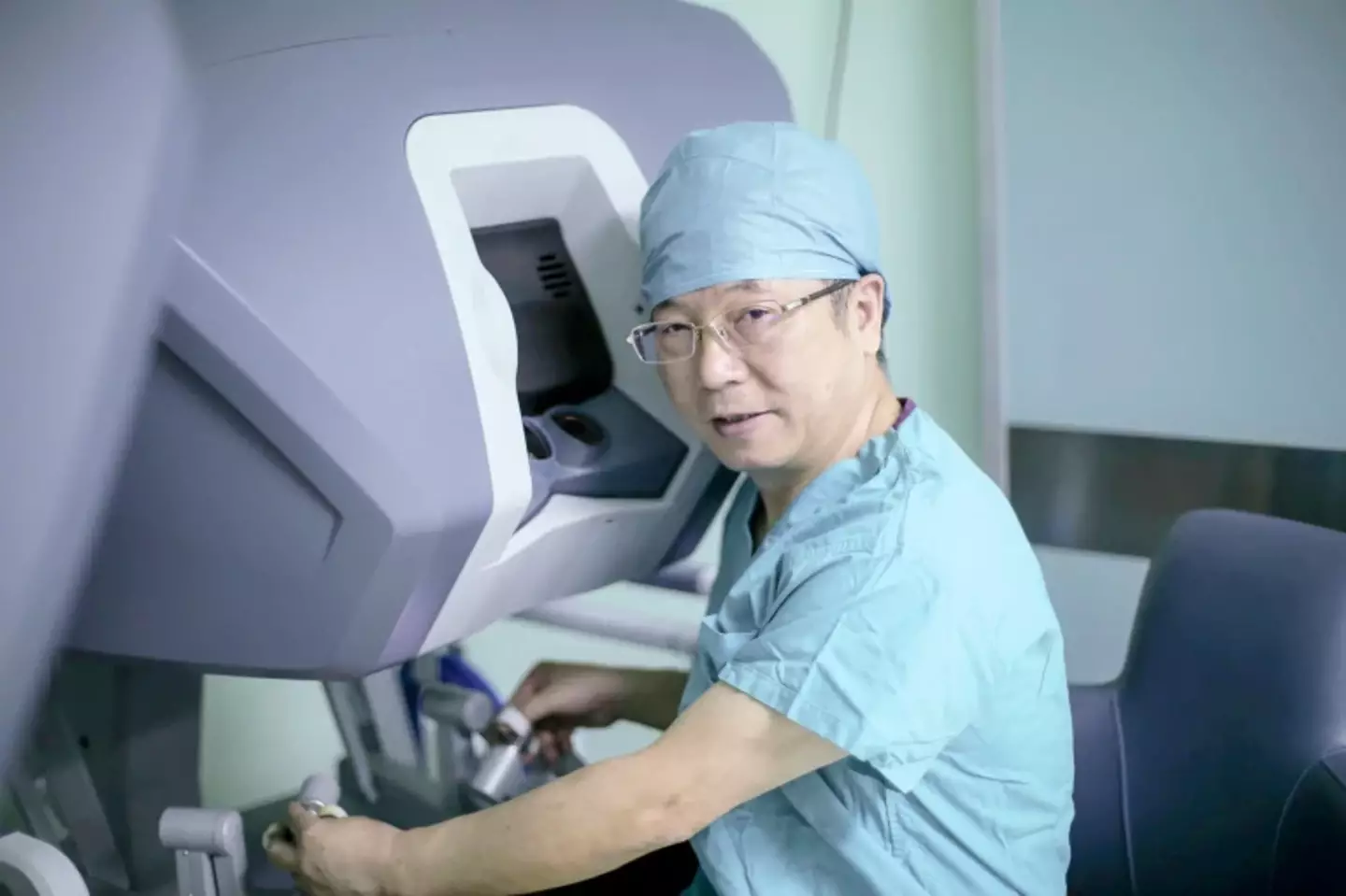

Featured Image Credit: CGNT

A doctor performed 'world's first' remote surgery 5,000 miles away, in mind-blowing footage.
Imagine having surgery performed by a doctor who is on another continent.
Well, you may not have to imagine for much longer.
Technologies like robotics to artificial intelligence, may be leading their way into the work field and replacing jobs like customer service and banking.
Advert
But their capabilities in the medical field are proving to be especially groundbreaking.
In a world-first achievement, a Chinese surgeon successfully carried out a robot-assisted prostate removal on a patient in Beijing, all the way from Rome.
The long-distance operation, known as telesurgery, allowed the surgeon to connect remotely to a set of robotic arms to carry out the procedure.
The procedure took place in July of 2024, but has recently been blowing minds again after going viral on Reddit.
“Telesurgery is one of the most important development directions in the future of surgery,” said Zhang Xu, director of urology at the People’s Liberation Army (PLA) General Hospital, who performed the surgery.
China's high-speed 5G network and fibre-optic connections means the surgeon was able to carefully remove a lesion on the patient's prostate without being physically present.
The procedure uses a console that displays a real-time image of the patient. Meanwhile, the robotic arms in the surgery mimic the surgeon's movements with accuracy and precision, allowing procedures like radical prostatectomy (the removal of cancerous prostate tissue) to be performed from thousands of miles away. In the case of any unforeseen circumstances, a medical team and a backup surgeon were physically present with the patient in Beijing.

Zhang noted that he was mainly concerned about any potential latencies in movements given the 20,000 km distance.
“The biggest problem with remote surgery is communication, and whether there is delay," Zhang said, according to a report from state broadcaster CCTV’s military channel. "Today’s surgery basically has no delay and is almost the same as on-site surgery.”
Fortunately, latency was kept to just 135 milliseconds, well below the 200-millisecond threshold that research suggests is ideal for such operations.
“For me it was really a historical experience, a historical moment,” said Vito Pansadoro, one of conference’s directors and a specialist in robotic surgery, according to CCTV.
The surgery was broadcast live during the Challenges in Laparoscopy and Robotics & AI conference, held in Rome.
Robotic-assisted surgery (RAS) is becoming more widely adopted among medical professionals, with Zhang and his time spearheading the way.
“We are able to overcome the geographical inaccessibility, putting the best surgical resources from metropolitan cities like Beijing and Shanghai into the most remote areas in real-time,” explains Zhang, as per Nature.